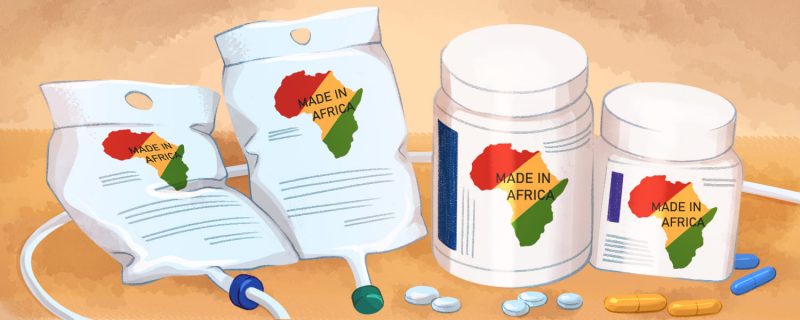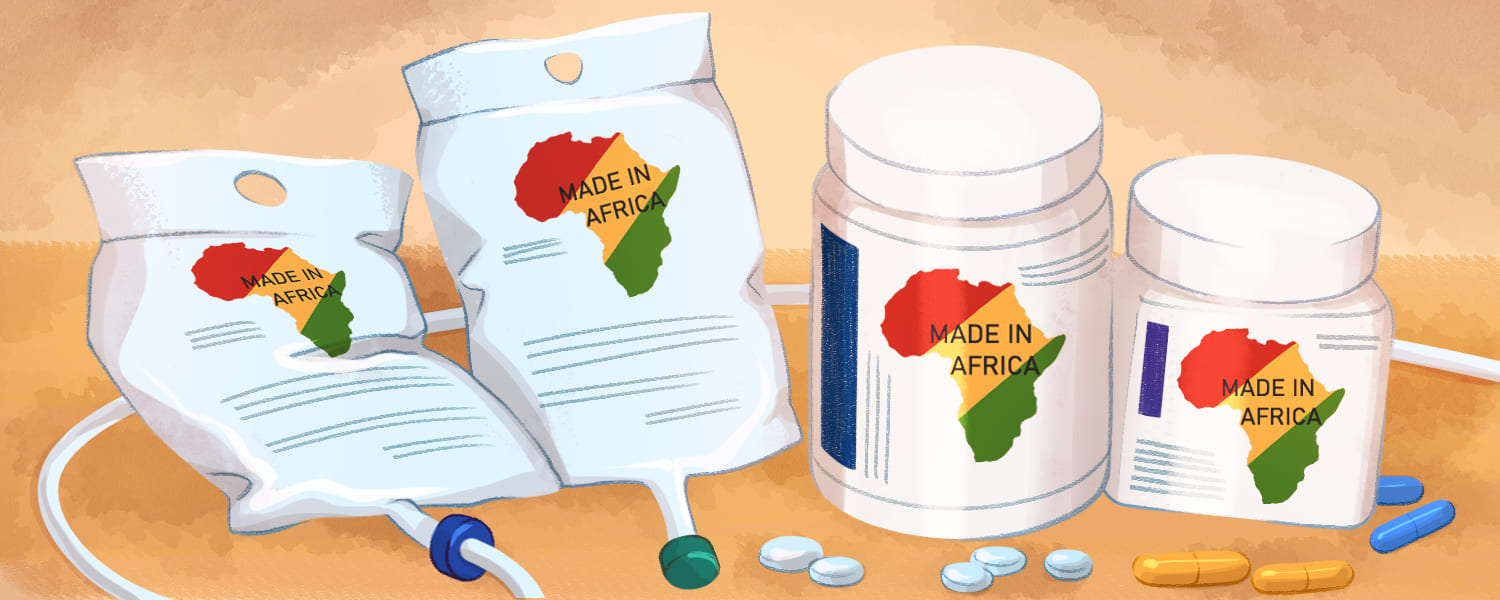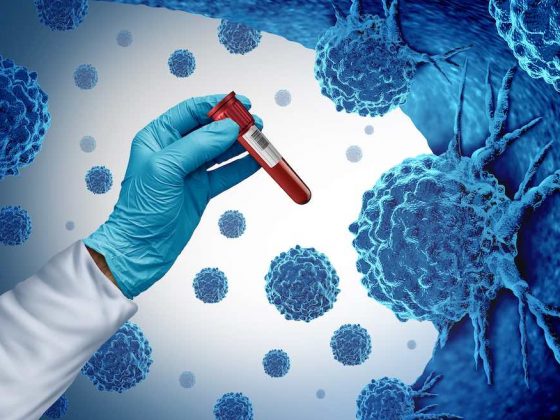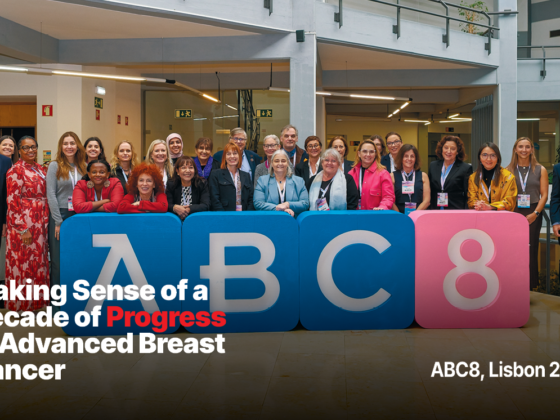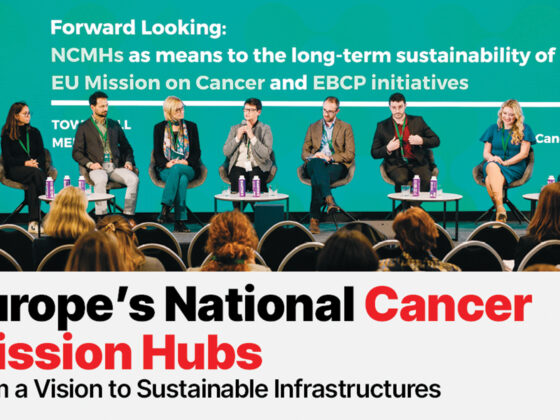More than two years ago, Cipla Quality Chemical Industries, a pharmaceutical manufacturing company in Kampala, Uganda, announced that it would start producing cancer drugs.
In a deal agreed in 2021 with the Ministry of Health, the company, which is part of a large multinational – agreed to add oncology drugs to its current list of medicines for HIV, hepatitis and malaria. The shared goal of the agreement was to improve access and reduce spending on procurement of cancer drugs for Ugandans and Africa.
But two years later, Uganda has not produced any cancer drugs and may not do so soon. The delays are attributed to problems on both the demand and supply side of the equation: manufacturing requirements that require a big investment, an uncertain market share and slow and cumbersome regulatory approval processes.
Overcoming these obstacles could make a big difference to the impact of current efforts to improve cancer survival rates in the region, which are currently among the lowest in the world. Improving the supply of cancer drugs accessible to patients in Africa is an important part of the wider challenge, alongside other key components required to deliver effective prevention, early diagnosis and care.
A survey asking oncologists about access to cancer drugs, published in Lancet Oncology in 2021, showed just how difficult it is to access essential cancer drugs in low/lower-middle income settings, which includes 43 of the 48 countries in Sub Saharan Africa. More than half of oncologists working in these resource-stretched settings report difficulties in accessing every single one of the drugs they rated as most important. Problems ranged from significant to catastrophic out-of-pocket expenditure, to outright lack of availability.
Almost all these priority drugs are the basic ‘workhorses’ of chemotherapy – anthracyclines, platinum drugs, alkylating agents, alkaloids – or hormonal therapies, which have all been available as generics for many years. Yet restricted supplies and high prices remain a major obstacle, with prices in Africa seemingly higher than in other similar regions. Studies show, for instance that countries in Africa appear to pay more for a package of essential cancer medications than countries with similar GDP and levels of demand in Latin America.
Improving the market environment is now seen as an essential part of any strategy to improve access to cancer treatment in the region
Improving the market environment, to encourage pharmaceuticals manufacturers in the region to invest in production of high-quality oncology drugs, and attract more interest in the region among global suppliers of cancer generics, is now seen as an essential part of any strategy to improve access to cancer treatment in the region.
Key to this will be the role of the African Medicines Agency (AMA), a specialised agency of the African Union, that was established in November 2021, and recently acquired a base, in Kigali, Rwanda. This new regulatory agency sees its role as facilitating access to markets and building confidence in the quality of health products, by working towards harmonised regulatory systems and promoting cooperation and mutual recognition in regulatory decisions across the African continent.
A ‘generational opportunity’
For companies like Cipla, making it easier to access markets beyond their own base in Uganda would make a big difference to their confidence in investing in cancer drug production. “A facility to manufacture oncology drugs requires a significant capital investment,” explains Nevin Bradford, their former Chief Executive Officer. “[It] would have to supply the entire region and beyond to be viable.”
That investment includes the cost of bringing in the expert staff required to set up and oversee production of oncology drugs, which would not be viable for smaller markets. The cost of inputs, for instance active pharmaceutical ingredients, also tends to favour companies making larger procurements, which again puts companies serving smaller markets at a disadvantage.
Improving the regulatory environment will be key to enabling African pharmaceutical companies to operate at a sufficiently large scale, says John Collins Kamili, a former chief pharmacist at Cipla, and now General Manager at the medical equipment manufacturers Piston Medical.
“One of our biggest hindrances to market access is regulatory approval. It is worse in Africa, where a country, however small they are as a market, you are required to go through their registration requirements to secure market authentication.”
Some countries in Africa have weak medicines regulations, and expertise to review product dossiers is low, adds Kamili, while some just ‘copy and paste’ European or American regulations due to lack of expertise, which can result in products from African manufacturers being turned down, for inappropriate reason.
Currently, securing access to markets across Africa involves submitting separate applications in 53 countries, for each product. It’s a gruelling process, says Kamili, with different requirements in each country, and takes an average of two to three years, sometimes longer. The deterrent effect is frequently cited as one reason that some drug manufacturers don’t bother seeking access to African markets.
A more collaborative and streamlined regulatory process across Africa should help bring down costs and improve access, including to essential oncology drugs
The hope is that, by facilitating access to larger markets, a more collaborative and streamlined regulatory process across Africa will help encourage more pharmaceutical production in the region, bring down costs, and improve access, including to essential oncology drugs.
Speaking at a session of the Africa Health Agenda International Conference, held in Kigali, March 2023, David Mukanga, Deputy Director, Africa Regulatory Systems at the Bill & Melinda Gates Foundation, said “We really believe, with the vision of the African Union, that this is a generational opportunity for the creation of the African Medicines Agency, and that the agency will work within a network with regional platforms that have existed in west, east, central, south, and the Horn of Africa.”
The plan
The AMA is looking to promote a ‘regulatory reliance’ approach, whereby the national regulatory authority in one jurisdiction may take into account and give significant weight to assessments performed by a regulatory authority in another country.
National regulatory agencies are expected to collaborate more and find ways to concentrate their limited resources on areas where they are most needed. This should increase efficient use of resources, reduce inequalities across countries, improve access to quality medicines and also promote implementation of standard of care treatment, said Mukanga. Collaboration should also open opportunities for national regulatory agencies to learn from one another, and build capacity in areas – including oncology drugs – where they may currently lack expertise.
That sounds like good news for manufacturers, says Bradford, the former Cipla CEO: “The African Medical Agency is a very positive development,” he says, “which could lead to the quicker approval of life saving medicines through one central approval without the necessity of obtaining individual country approvals.”
Kamili agrees. “This will attract investments in the region because predictable regulatory environments produce standard products on the market.” He hopes that moves towards centralising and aligning regulatory systems will also lead to harmonising other aspects, such as labelling requirements, fees, and the structure and formatting of dossiers.
The AMA may also play a direct role in supporting the development of pharmaceutical manufacturing in the region. That is the hope and expectation of Richard Kasonogo, Regulatory Affairs Pharmacist at the Food and Drugs Authority in Tanzania, which, along with Ghana, South Africa and Ethiopia, is one of the strongest national regulatory authorities in Africa.
“I expect AMA to collaborate with TMDA [the Tanzanian Medicines and Medical Devices Authority] to promote local manufacturing of essential medicines in Africa,” he says, though he acknowledges cumbersome regulation is only one of many challenges,“… most of them relate to technology of which AMA is not in that position to offer [assistance].”
The Tanzanian Government is already working with TMDA to promote local manufacturing in the country, he says. Currently no local company has invested in producing any oncology drugs, says Kasonogo – but making it easier to access regional markets could encourage some companies to take that on.
’On the right track’
Promoting collaboration among countries with different needs, interests and income levels will always be tricky, and while the great majority of African states have now signed up to the AMA, a few large players, including Nigeria, Ethiopia and South Africa are not yet on board, though a positive recommendation was put to the South African Parliament in May 2023.
Global health agencies that are active at a policy level in the region certainly sound very positive about the general direction of travel. Ademola Osigbesan, technical manager at Unitaid, which works closely with the World Health Organization to generate evidence to inform global guidance on healthcare, expressed his confidence that African manufacturing is on the right track.
Speaking at a meeting of global health policy advocates WEMOS, 17 May 2023, on the topic Regional production for equitable access to medicine, he said, “The AMA regulatory harmonisation project is moving at a good enough pace. As we speak, we’re having regional initiatives like the procurement and maintenance mechanisms that will strengthen regional manufacturing, and this has been done in collaboration with industry.”
African manufacturers are now seeing the potential for collaboration between themselves, allowing them all to benefit
He also pointed to encouraging signs that African manufacturers are now seeing the potential for collaboration between themselves, such as with a proposal for companies to come together to form a syndicate to manufacture active pharmaceutical ingredients, allowing them all to benefit from reducing their costs.
Being able to reap the benefits of access to a regional market, working to optimise the operations of all manufacturers in that area, and exploring opportunities to integrate, can all play a role in strengthening Africa’s capacity to manufacture its own medicines, said Osigbesan.
Value for money?
The positive mood regarding future prospects for Africa’s pharmaceutical companies is tempered, however, by a recognition of the difficulties local manufacturers entering the market will have in competing with bigger generics manufacturers from East and West.
Improving Africa’s regulatory environment will entice more global players into African markets, which has to be good news for patients and healthcare budgets. But case studies indicate that, initially at least, production costs for local companies will be around 15–20% higher than for global competitors. The industry will therefore need some level of protection, to enable them to charge higher prices, or subsidies or other mechanisms, to ensure its viability.
“In the early days of local manufacturing, it’s going to be very difficult to nurture a new industry on the continent. It is not unusual to protect industry or to buy premium as a local manufacturing happens in Europe and high-income countries for hundreds and hundreds of years,” said Osigbesan.
For governments, this raises the policy dilemma of whether to prioritise access to (well-regulated) drugs at the cheapest price, or to recognize the added value of essentially paying more to promote local suppliers, with all the wider economic benefits that could ensue, not least from building local capacity in scientific and medical technology, know-how and research.
This is a discussion that really took off during the Covid-19 pandemic, when the lack of capacity for vaccine production across much of the world was thrown into stark relief.
Speaking at the same WEMOS meeting, Petro Terblanche, Managing Director of Afrigen Biologics and Vaccines, in Cape Town, which now hosts the first mRNA hub in South Africa, said, “I think there’s a debate developing that we need to be innovative around the [economic] models we put forward, which will then enable low- middle income countries to have the capacity to develop and manufacture their own vaccines.”
“We understand the socio-economic impact and value of local production. We have run this for antiretrovirals: the multipliers for job creation, for direct foreign investment, GDP creation, knowledge economy, innovation, skilled workforce is enormous.”
In the medium to long term, access to quality cancer care, and healthcare and technological and research capacity in general, across Africa is likely to benefit from a stronger pharmaceutical industry in the region. Right now, however, the prospect of quality cancer generics getting easier access to African markets – whoever the supplier – can only be good news for patients.
Illustration: Alessandra Superina

